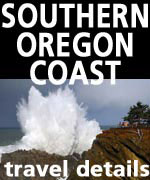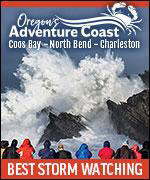Keep an Eye Out for Stranded Sea Turtles on Oregon Coast, Washington Beaches
Published 01/15/2020 at 7:25 PM PDT
By Oregon Coast Beach Connection staff
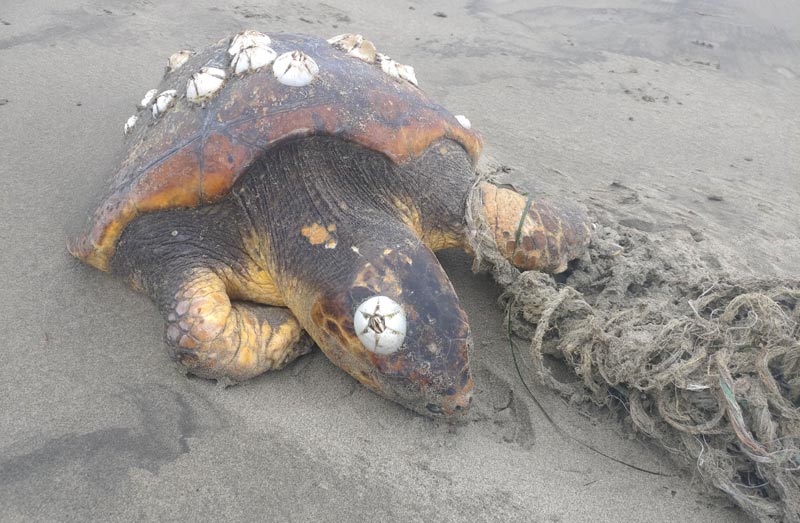
Includes exclusive listings; some specials in winter
In Cannon Beach:
Includes rentals not listed anywhere else
In Manzanita, Wheeler, Rockaway Beach:
Some specials for winter
In Pacific City, Oceanside:
Some specials for winter
In Lincoln City:
Some specials for winter
In Depoe Bay, Gleneden Beach:
Some specials for winter
In Newport:
Look for some specials
In Waldport
Some specials for winter
In Yachats, Florence
Some specials for winter
(Seaside, Oregon) – Every winter comes the sad sight of one particular kind of marine wildlife seriously out of place: sea turtles found deceased or dying on the Oregon coast or Washington coast. State officials want the public to keep an eye out for these. (All photos courtesy Tiffany Boothe, Seaside Aquarium).
That’s exactly what happened again just last week, with a Loggerhead turtle found dead on a beach in Gearhart, this time with an extra-added element of the alarming as one fin was entangled in a net.
What kills them is the same thing every year - and no, the net didn’t necessarily play a part, according to Seaside Aquarium’s Keith Chandler. There’s no way to know that, he said, and it’s even impossible to tell if the net was picked before or after death. Warm currents periodically run farther north than usual and then dissipate abruptly, and some warm-water species like turtles can get fooled by this and suddenly find themselves in colder waters that are deadly to them.
In the case of the Loggerhead turtle found Tuesday at Sunset Beach, that one was already dead.
Crews from the aquarium received the call around 11:30 a.m., and when they arrived at Sunset Beach they found a deceased 30-pound sea turtle, and it had likely died long before washing ashore.
“Though there was a small amount of netting found wrapped around its left flipper the cause of death is currently unknown,” Boothe said. “A necropsy will be preformed at a later date to determine the cause of death.”
Boothe said no one could be certain if the netting had something directly to do with its death or not, but what is certain in these cases is that cold shock is likely the main factor.
“With the current weather patterns it would not be unusual for more sea turtles to show up on Oregon and Washington beaches,” Boothe said.
It’s something to keep an eye out for on both the Washington coast and Oregon coast.
“Sea turtles forage for food in an offshore warm-water current that originates much farther south,” Boothe said. “Certain weather patterns like prolonged southwest winds can drive that warm water farther north and closer to shore than usual. If this happens and then conditions suddenly change, the warm current dissipates, and the turtles find themselves trapped in the colder currents that run naturally along the Oregon and Washington coasts. Turtles like all reptiles are cold blooded, so this is a highly unfavorable situation for them. Their bodily functions slow and they may become hypothermic. Strong west winds can blow hypothermic sea turtles onto the beach, where they have a better chance of being found and taken to a rehabilitation facility.”
Boothe said turtles suffering from extreme hypothermia may be unresponsive to touch. Their heartbeats get so slow and weak it’s barely possible to detect them. When found along either coastline, authorities get the sea turtles to one of two licensed rehab facilities on the Pacific Northwest coastline: Oregon Coast Aquarium in Newport and Seattle Aquarium up north.
“It can take multiple weeks for a turtle to stabilize from such trauma, if it recovers at all,” Boothe said. “If it does indeed stabilize, the turtle is transferred to another rehab facility in California where it may continue its recovery. If all goes well, it's finally released back into the wild.”
Loggerheads inhabit all oceans, primarily in temperate water. They are named for their relatively large heads, which support powerful jaws and enable them to feed on hard-shelled prey, such as crabs and mollusks. Loggerheads are the most abundant species of sea turtle found in U.S. coastal waters. Like all sea turtles the loggerhead are protected in the U.S. and most countries worldwide.
In the Pacific Ocean they are found as far north as Alaska and as far south as Chile, however during the winter months loggerhead sea turtles migrate to tropical and subtropical waters.
So what do you do if you come across a sea turtle on the beach?
Boothe said either call the Seaside Aquarium at 503-738-6211, or call the local police.
“Report the location and condition of the turtle,” Boothe said. “The quicker a turtle gets reported, the quicker authorities are then able to get it off the beach.” More photos below:
Oregon Coast Hotels in this area - Where to eat - Maps - Virtual Tours
Cannon Beach Lodging
Nehalem Bay Lodgings
Manzanita Hotels, Lodging
Three Capes Lodging
Pacific City Hotels, Lodging
Lincoln City Lodging
Depoe Bay Lodging
Newport Lodging
Waldport Lodging
Yachats Lodging
Oregon Coast Vacation Rentals
Oregon Coast Lodging Specials
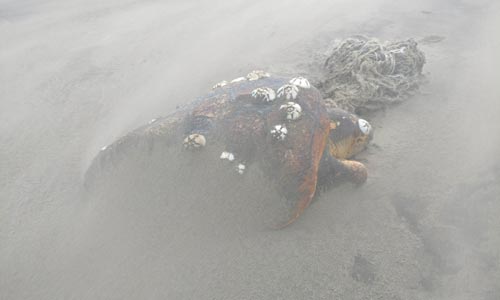
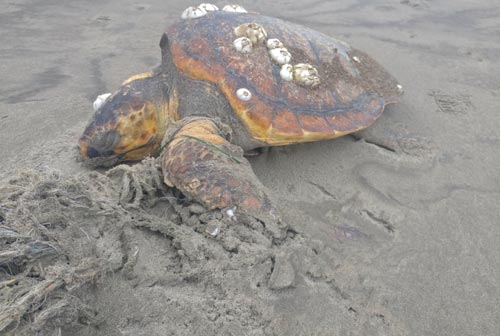
More About Oregon Coast hotels, lodging.....
More About Oregon Coast Restaurants, Dining.....
LATEST Related Oregon Coast Articles
The move would have left the closest helicopter rescue 100 miles away. Safety
The Opposite of an Exploding Whale: Oregon Coast History of 'Zombie Whales'
1952: whale would not stay buried. Was it finally entombed in cement. Marine sciences
South Oregon Coast First Day Hikes: Nature's Workout in Bandon, Coos Bay, Ree...
Hike near lighthouses or along the sands. Bandon events, Coos Bay events, Reedsport events, Florence events, Florence event, Port Orford events
N. Oregon Coast First Day Hikes Include Near Astoria, Pacific City, Waldport
Free self-guided hikes in awesome places: Warrenton events, Coast Range, Portland events, Pacific City events, Waldport events
Forecasts for Oregon Coast Whale Watch Week, How Well It Cooperates
Chilly and windy at times but mostly calm waves that let you spot them. Weather
Central Oregon Coast's Glass Float Drops Mellow a Bit: Special Drop Dates Few...
Bringing the Lincoln City events back to their roots
4.5 Quake Off S. Oregon Coast After A Week of Smaller Ones
Quakes on Dec. 15, 17, 20 and last night off Coos Bay, Bandon. Geology
Final Third of Oregon Coast Given Okay to Start Commercial Crabbing
Majority of the coast began crabbing last week. Marine sciences
Back to Oregon Coast
Contact Advertise on BeachConnection.net
All Content, unless otherwise attributed, copyright BeachConnection.net Unauthorized use or publication is not permitted
















